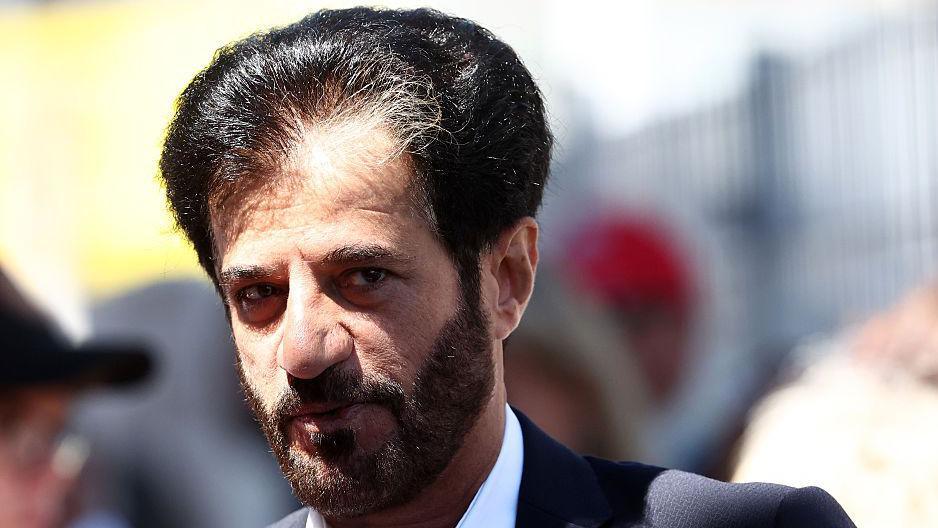President Mohammed Ben Sulayem has removed the country’s representative from the FIA Senate.
Ben Cussons, the vice-president of the Royal Automobile Club, had supported Ben Sulayem’s nomination for the role of president of motorsport’s governing body for three and a half years.
Anar Alakbarov, an Azerbaijani who is known as a supporter and ally of Ben Sulayem, has taken his place.
The FIA’s senate has the authority over the governance structure and financial oversight.
He claimed that he and David Richards, the head of the British motorsport’s governing body, were “staunch supporters of Mohammed in his election year and his then manifesto,” and that he had been unaware of this.
I haven’t fallen out with him, he continued.
I wrote to him for clarification, but I haven’t received a response. I firmly believe in accountability and good governance.
Ben Sulayem and Cussons are at odds with one another over his criticism of the requirement to sign a stricter non-disclosure agreement in relation to the FIA business. After making his position clear, he claims to be “awaiting a response from the FIA.”
His removal comes just weeks after the FIA general assembly’s composition rules were changed.
The four “independent and qualified” members of the senate were given the authority to appoint or dismiss them by the FIA president.
Prior to now, the president had the authority to only make recommendations for their appointment or removal, which required the president’s 12 remaining members’ approval.
The FIA cited as a reason for the change as providing “more flexibility in having the expertise required for the numerous and varied topics that the senate has to deal with and which may require an urgent decision.”
The potential requirement was already contained in other FIA regulations, according to critics, and it was a clear attempt to consolidate Ben Sulayem’s influence.
Four of the other 12 senate members are chosen by each of the world councils for sport and mobility, along with four from the president’s team.
When world councils are unable to meet, the senate has the power to decide on the FIA’s rules, including those governing Formula 1.
A number of senior figures were removed after Cussons’ dismissal, all of whom appear to have had disagreements with or clashed with Ben Sulayem.
In addition to these individuals, chief executive officer Natalie Robyn, FIA F1 race director Niels Wittich, compliance officer Paolo Basarri, and Bertrand Badre, the head of the audit committee, are also mentioned.
Robert Reid left his position as the FIA vice-president for sport in March due to what he termed a “standards breakdown” at the organization.
Richards has been barred from attending FIA World Council meetings in recent months because he disapproved of members’ stricter non-disclosure agreements.
Following Richards’ criticisms of changes to the statutes made last December, the decision to impose stricter NDAs on world council members was also resisted by a number of other members.
According to a FIA spokesperson, the organization thanked Mr. Cussons for his contributions to the organization while serving as a member of the FIA Senate.
The spokesperson did not respond to inquiries regarding his removal, whether it had been planned before the statute changed, or whether additional members had been planned.
Additionally, they refused to respond to a question about whether it was appropriate to draw the conclusion that this was an example of the conduct that opponents of the two most recent statute changes had warned about and that there was evidence of what was described as a “weakening of the senate’s ability to perform oversight functions, particularly oversight of the president himself.
Instead, the spokesperson went on to explain the senate’s function, saying it “plays a crucial role in the governance of the FIA, ensuring effective oversight of its financial and administrative affairs, and guiding the strategic implementation of its long-term vision across sport and mobility.”
The federation’s financial transformation turned out to be pivotal, they continued, adding that “the FIA posted a significant operating profit for the first time since 2019.”
A super majority of FIA member clubs voted through any proposed changes to the FIA statutes at the FIA general assemblies, in accordance with the democratic process that governs federation decision-making.
The FIA statutes’ amendments “enhance governance and confidentiality processes even more.”
related subjects
- Formula 1
Source: BBC

Leave a Reply